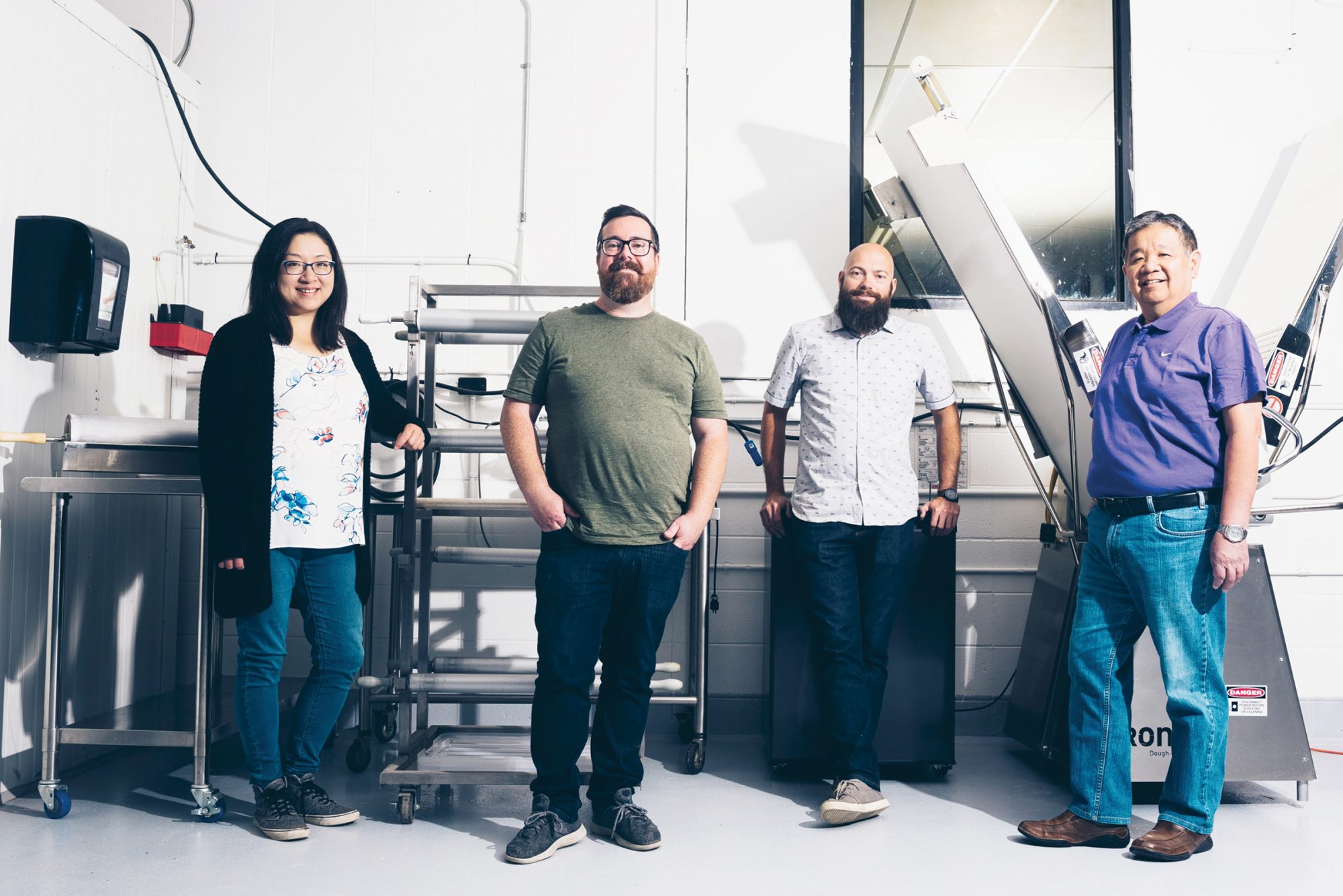Call them food collectives, hubs, accelerators or incubators — whatever their names, new types of food business have come to Edmonton; they connect the dots between different parts of the local food landscape.
In spring 2019, The Public made a splash long before it opened by securing $600,000 in funding from the City of Edmonton. Helmed by Kirsta Franke, director and proprietor of Wild Heart Collective, and the co-founder and partner at The Public. The Public is a multi-faceted project that leverages Franke’s networks and expertise in the food industry to connect food producers, growers, consumers, chefs, manufacturers and distributors.
“The Public is a platform with the tools, facilities and networks to develop products from concept to shelf,” Franke explains. “It’s part lab, part production facility, part venue and gathering space, and part retail marketplace.”
The first phase of The Public is slated to open late December 2020 and will feature a 10,000 square-foot back-of-house space with space for 12 kitchens, cold/frozen/dry storage, a distribution area and a cidery. The final phase, which Franke hopes will open in spring 2021, is a 5,000 square-foot retail market and event space.
Franke describes The Public as a food accelerator, with a primary goal of helping food businesses scale up from their current stages. It could be a vendor who wants to move beyond farmers’ markets and into grocery stores, for example, or a chef doing pop-up dinners around the city. Because these businesses are in the early stages of their development, Franke said The Public can’t release more information about them at this stage.
Uproot Food Collective is a similar enterprise, though it differs from The Public in a few key ways. Uproot is the brainchild of Chris Lerohl and Ray Ma, co-founders of Honest Dumplings, Jamie Scott, the founder of South Island Pie Co., and Allen Yee, current COO of Uproot. After many trials and tribulations growing their businesses from farmers’ market stand to niche grocery store to major grocery chain, Lerohl and Ma realized they could help other producers scale up efficiently and sustainably, and help them leverage distribution, relationships, procurement and safety systems, as well as avoid making all the same mistakes that they had.
